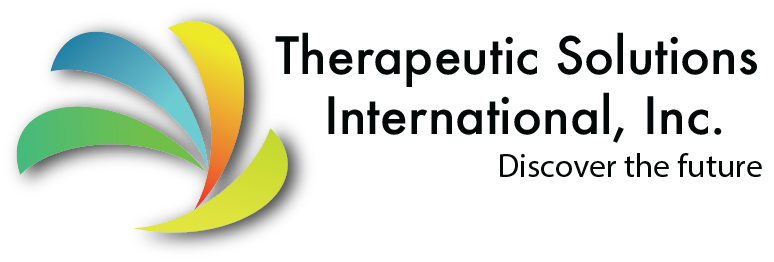Press Releases
Therapeutic Solutions International Completes Phase 1 Clinical Trial in Advanced Cancer Patients for Right to Try Access of its StemVacs Product for American Cancer Patients
Company to use Phase I Data of its Cancer Stem Cell Immunotherapy to Allow for use in the USA under President Donald Trump’s Right to Try Law
OCEANSIDE, Calif., Sept. 04, 2018 (GLOBE NEWSWIRE) — via OTC PR WIRE — Therapeutics Solutions International, Inc., (OTC Markets: TSOI) announced today completion of a Phase I clinical trial in advanced cancer patients using its StemVacs cellular immunotherapy. The clinical trial was aimed at establishing the safety of StemVacs, an immunotherapeutic cell-based drug that instructs the immune system to seek and destroy cancer stem cells. It is believed that cancer stem cells are responsible for initiating the growth of tumors.
“Through our collaborators at the Pan Am Cancer Treatment Centers, we have been able to successfully administer the StemVacs cellular cancer immunotherapeutic to 10 patients with various types of advanced cancers. We have observed no treatment-associated adverse events, and in some cases, stabilization of tumors and stimulation of immunity were observed and noted,” said Timothy Dixon, President, and CEO of Therapeutic Solutions International. “This Phase I safety data strongly supports our continued clinical development of StemVacs, of which part of the development pathway includes providing patients access to it now under the Right to Try Law.”
Dendritic cells (DC), which are the main ingredient in StemVacs, are cells of the immune system whose primary function is to initiate immune responses against different pathogens (1,2). In the context of cancer, DC’s activate immune responses that in some cases are capable of killing cancer cells (3,4). Unfortunately, in cancer patients, many times the dendritic cells are not functionally active (5-7). This is because cancer cells produce factors such as VEGF, which inhibit the ability of the DC to perform their job of activating T cells (8,9). The StemVacs product is comprised of DC that are generated under laboratory conditions so as to render them resistant to the inhibitory effects of cancer. Additionally, the StemVacs DC’s are designed so as to induce an immune response against cancer stem cells.
“Immunotherapy is the greatest advancement in the area of clinical oncology. FDA approved immunotherapies include the DC based product Provenge, the T cell based products Yescarta and Kymriah, and antibody based therapies such as Opdivo and Keytruda,” said Dr. James Veltmeyer, Chief Medical Officer of Therapeutic Solutions International. “To our knowledge, StemVacs is the only clinical stage immunotherapeutic that kills cancer stem cells. This, combined with the safety and signals of efficacy obtained from the current Phase I clinical trial, support us to expand the use of StemVacs under President Trump’s recently passed Right to Try Law.”
About Therapeutic Solutions International, Inc.
Therapeutic Solutions International is focused on immune modulation for the treatment of several specific diseases. Immune modulation refers to the ability to upregulate (make more active) or downregulate (make less active) one’s immune system. The Company’s corporate website is www.therapeuticsolutionsint.com.
References
1. Steinman, R. M. (2012) Decisions about dendritic cells: past, present, and future. Annu Rev Immunol 30, 1-22
2. Steinman, R. M., and Banchereau, J. (2007) Taking dendritic cells into medicine. Nature 449, 419-426
3. Palucka, K., and Banchereau, J. (2012) Cancer immunotherapy via dendritic cells. Nat Rev Cancer 12, 265-277
4. Rolinski, J., and Hus, I. (2014) Breaking immunotolerance of tumors: a new perspective for dendritic cell therapy. J Immunotoxicol 11, 311-318
5. Ma, Y., Shurin, G. V., Peiyuan, Z., and Shurin, M. R. (2013) Dendritic cells in the cancer microenvironment. J Cancer 4, 36-44
6. da Cunha, A., Michelin, M. A., and Murta, E. F. (2014) Pattern response of dendritic cells in the tumor microenvironment and breast cancer. World J Clin Oncol 5, 495-502
7. Liu, Q., Zhang, C., Sun, A., Zheng, Y., Wang, L., and Cao, X. (2009) Tumor-educated CD11bhighIalow regulatory dendritic cells suppress T cell response through arginase I. J Immunol 182, 6207-6216
8. Osada, T., Chong, G., Tansik, R., Hong, T., Spector, N., Kumar, R., Hurwitz, H. I., Dev, I., Nixon, A. B., Lyerly, H. K., Clay, T., and Morse, M. A. (2008) The effect of anti-VEGF therapy on immature myeloid cell and dendritic cells in cancer patients. Cancer Immunol Immunother 57, 1115-1124
9. Strauss, L., Volland, D., Kunkel, M., and Reichert, T. E. (2005) Dual role of VEGF family members in the pathogenesis of head and neck cancer (HNSCC): possible link between angiogenesis and immune tolerance. Med Sci Monit 11, BR280-292
Safe Harbor Statement
This release contains forward-looking statements that are based upon current expectations or beliefs, as well as a number of assumptions about future events. Although we believe that the expectations reflected in the forward-looking statements and the assumptions upon which they are based are reasonable, we can give no assurance that such expectations and assumptions will prove to have been correct. Forward-looking statements are generally identifiable by the use of words like “may,” “will,” “should,” “could,” “expect,” “anticipate,” “estimate,” “believe,” “intend,” or “project” or the negative of these words or other variations on these words or comparable terminology. The reader is cautioned not to put undue reliance on these forward-looking statements, as these statements are subject to numerous risk factors as set forth in our SEC filings. To the extent that statements in this press release are not strictly historical, including statements as to product launch timing, revenue projections, business strategy, outlook, objectives, future milestones, plans, intentions, goals, future collaboration agreements, or otherwise as to future events, such statements are forward-looking, and are made pursuant to the safe harbor provisions of the Private Securities Litigation Reform Act of 1995. The forward-looking statements contained in this release are subject to certain risks and uncertainties that could cause actual results to differ materially from the statements made.
CONTACT INFORMATION
- Therapeutic Solutions International, Inc.
ir@tsoimail.com
